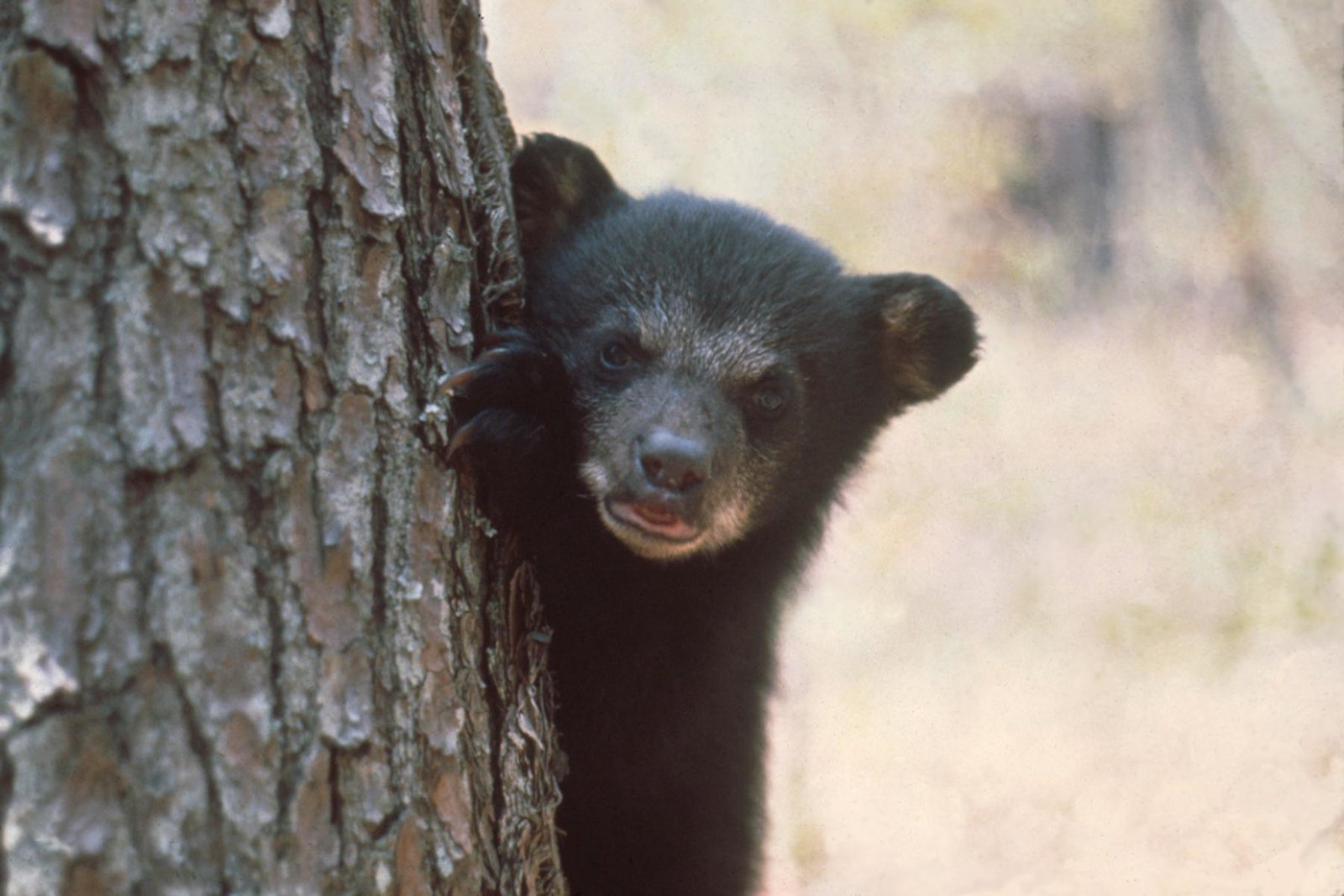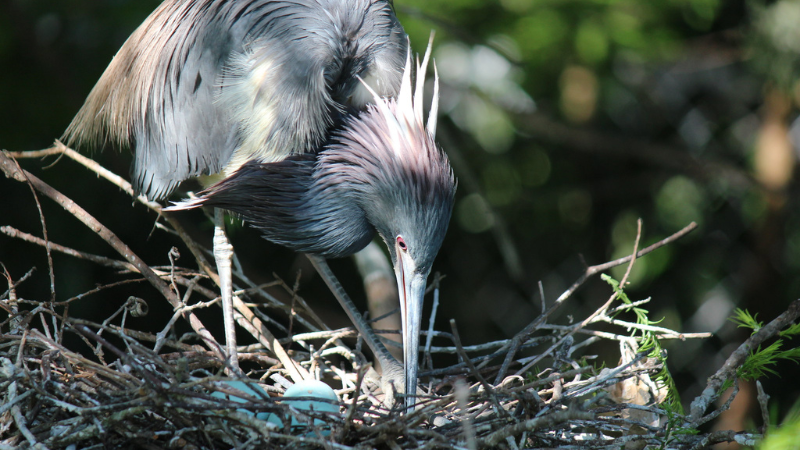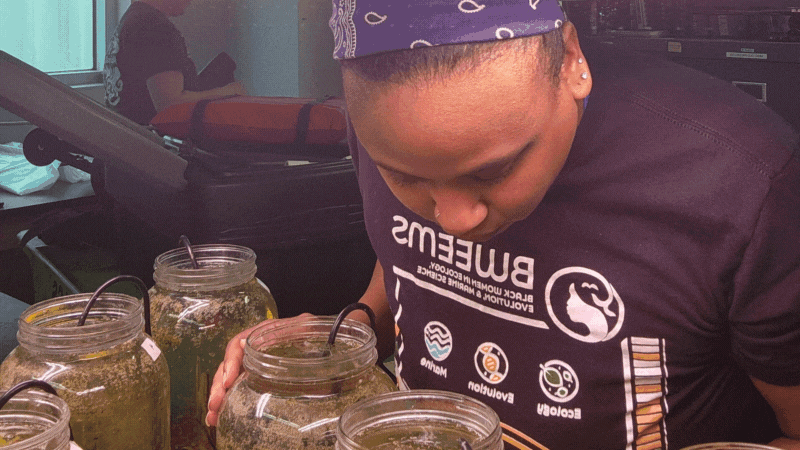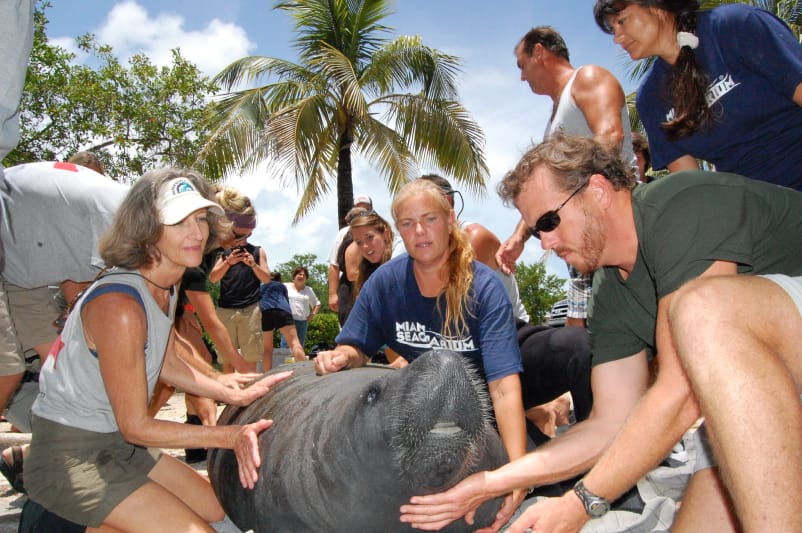
By: Kyle Grammatica
Spring is the perfect time to explore wild Florida! While you’re planning springtime trips and shaking off the winter blues, so are Florida black bears.
While Florida black bears are not true hibernators, they do enter a state of lethargy in the winter. This winter laziness is called torpor and is brought on by several factors, including reproductive status, food availability, amount of daylight, and temperature change. While in torpor, bears are much less active and spend most of their time relaxing in their dens. Their heart rate drops and they don’t have to eat or drink much. Instead, they live off of fat stores. Female bears spend more time in torpor than male bears, who sometimes don’t need it at all. For mother bears, this resting period is spent nursing cubs and keeping them safe from potential aggressors.
But when spring arrives, adult bears are active again and cubs start learning to forage and survive in the wild. With increased bear activity comes a higher chance of bear-human interactions. It’s important to remember that black bears are shy animals that almost always avoid confrontation with humans. Attacks are extremely rare, but educating yourself on what to do if you encounter a bear can help keep you and it safe.
- If you encounter a bear at close range:
- Remain standing upright.
- Speak to the bear in a calm, assertive voice.
- Back up slowly toward a secure area, leaving the bear a clear escape route.
- Avoid direct eye contact – this may be viewed as aggressive behavior.
- Stop and hold your ground if your movement irritates the bear instead of calms it.
- When encountering a bear do not:
- Make any sudden or abrupt movements.
- Run – this may trigger chasing instincts.
- Play dead.
- Climb a tree – black bears are excellent climbers.
- Try to surprise it, especially if it appears injured.
Taking preventative measures as a community is one of the best ways to reduce conflicts with bears. That’s why the Foundation has given over $600,000 to purchase bear-resistant dumpsters and trash cans in areas with high bear activity in cooperation with local governments, residents, and businesses. Using bear-resistant trash cans keeps bears away from residential property and lessens the chance of them losing their natural aversion to humans, protecting people, pets, and bears.
To fund bear conservation projects and much more, purchase our Conserve Wildlife license plate at your local tax collector’s office!












